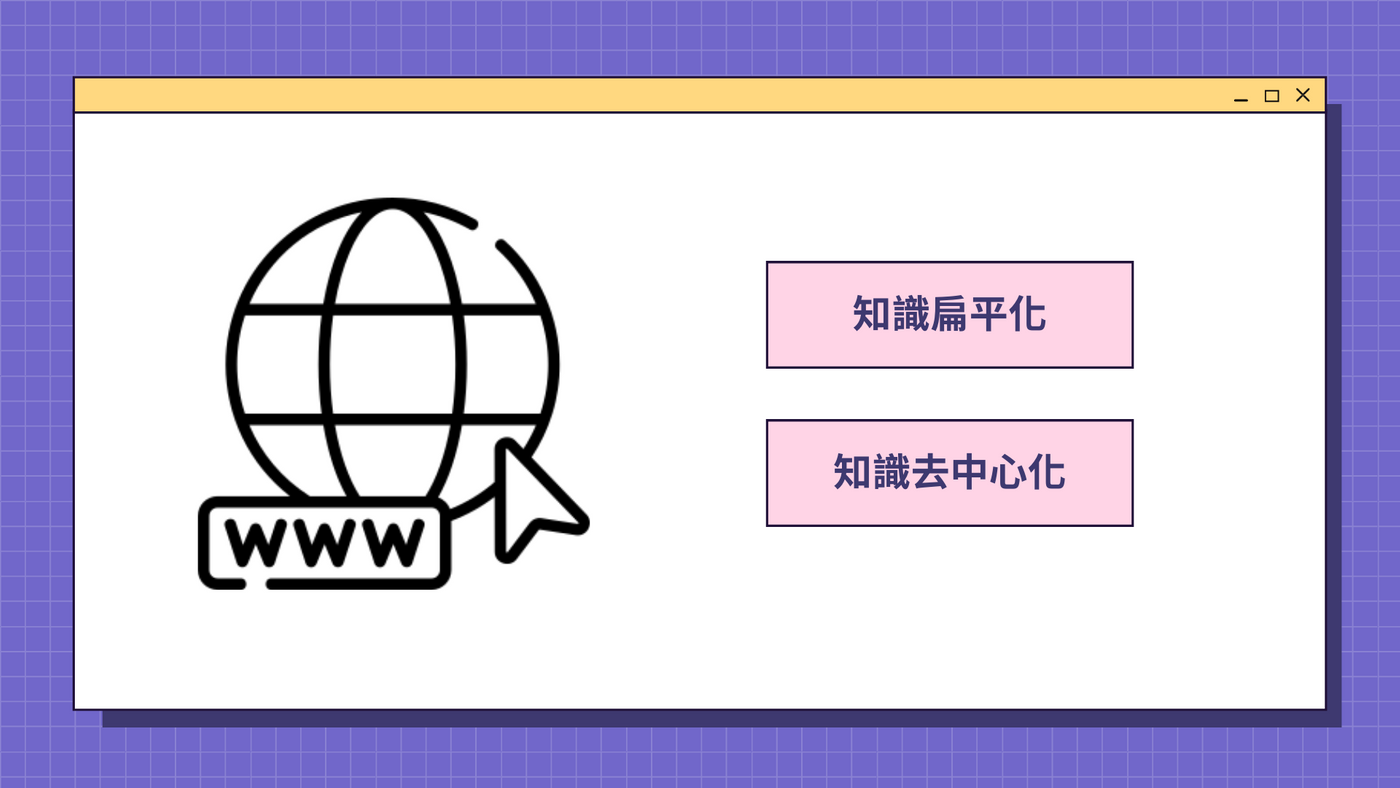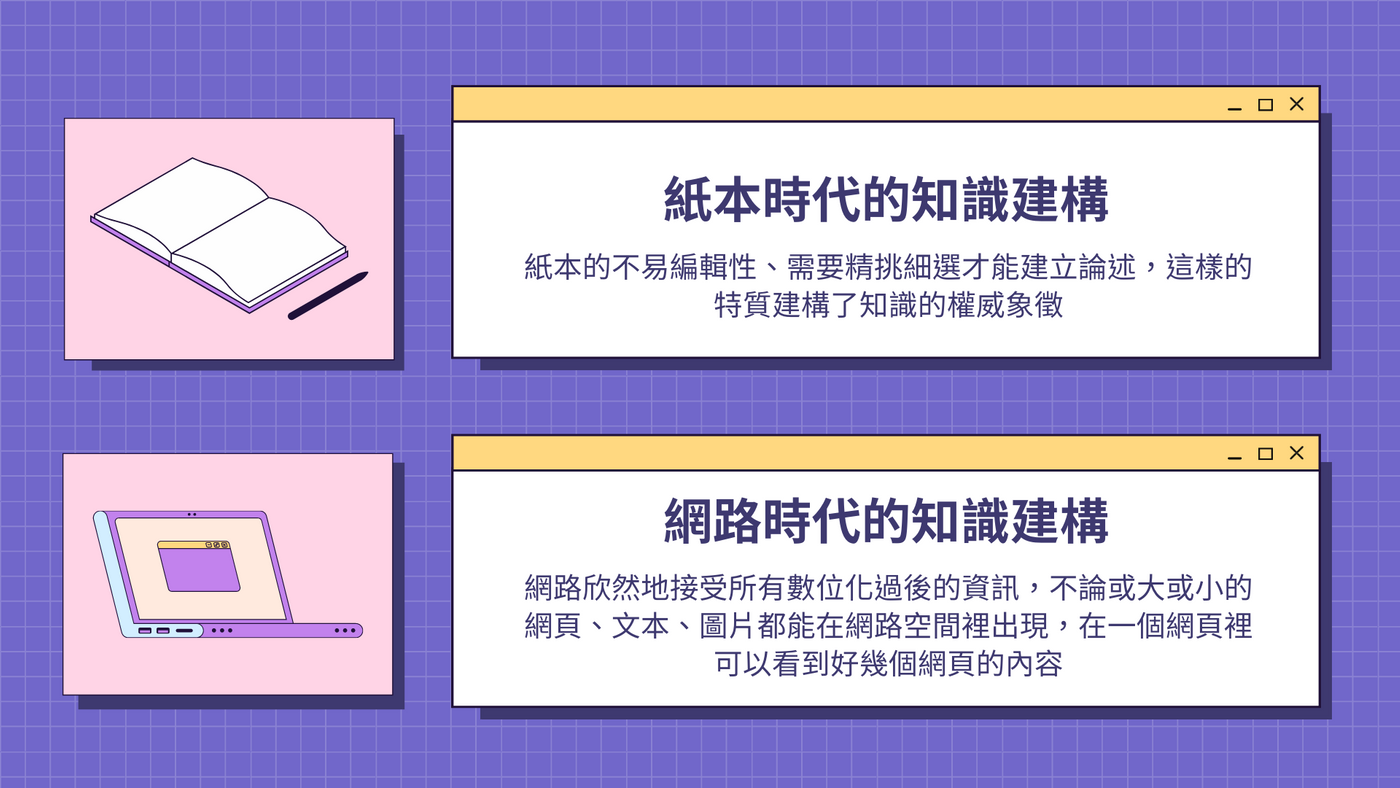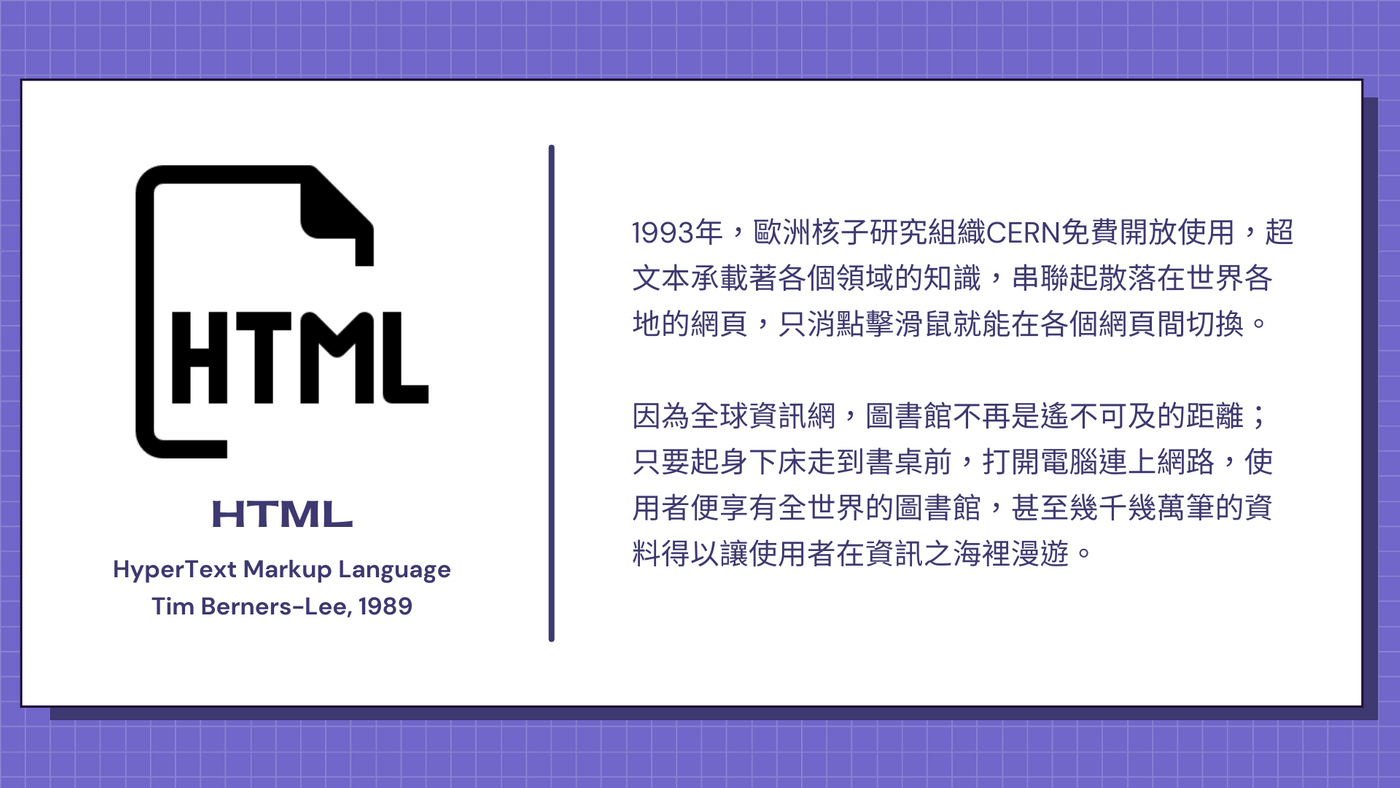📝📝: Information Network Special Ep. 2|The Theory of Knowledge of the Internet

Internet of Knowledge
The two biggest impacts of the Internet on knowledge are "knowledge flattening" and "knowledge decentralization", which will be discussed separately below. The influence of knowledge flattening comes from the media characteristics of the Internet. After digitized information is placed in the Internet space, the remaining representation (representation, also referred to as “representation”) of knowledge has disappeared. The original fixation point and context. Discourse in the paper age, because of the difficulty of editing and the need for careful selection to build a discourse, constitutes an authoritative symbol of knowledge; however, the Internet happily accepts all digitized information, Large or small web pages, texts, and pictures can all appear in the web space. I can see the content of several web pages in one web page.
Further, "Internet citations" are cleverly designed to exist in the form of hypertext, which means that a large amount of hypertext exists in each web page to import every user exactly into another. A whole new web page, a whole new field, even a whole new world.

The Internet has achieved what the citation materials in the past paper era could not do. Through hypertext technology, knowledge from different fields can be gathered on the same text and connected in two directions. Even if the two fields are fundamentally different, hypertext Connections can still break down the boundaries of knowledge and connect each other. The injection of hypertext directly disintegrates the authoritative image of knowledge, and the two-way concatenated knowledge structure makes it impossible to feel the gap between different knowledge in the way of ingestion. Internet-based knowledge can easily lead users to establish the myth that traditional knowledge is the same as Taoist, scribbled and said; in the paper age, the gap between the two can be said to be completely different, not to mention that in the same text, the Internet The flattening of the two allows the two to go hand in hand.

American philosopher and information technology critic David Weinberger believes that starting from human knowledge beliefs, the Internet simply does not have the conditions required to build a knowledge whole:
"There are no editors and librarians to decide what goes in and what goes out; there are no walls that everyone agrees on (at least no walls that everyone agrees on) to let us know that within a certain range is knowledge, and outside it is uncertain. . The permanence, stability, and group loyalty required and implied by a knowledge body are either trivial or nonexistent on the Internet.” (David Weinberger, 2011)
McLuhan once commented that printing has brought about the prosperity of " everyone is a publisher " (Marshall McLuhan, 1964), and analyzed by itself, printing technology has brought about the decentralization of power, and publishing books is not a problem. In addition to the exclusive rights of the church center, the definition of knowledge is no longer the monopoly power of the church.
Like my work? Don't forget to support and clap, let me know that you are with me on the road of creation. Keep this enthusiasm together!

- Author
- More